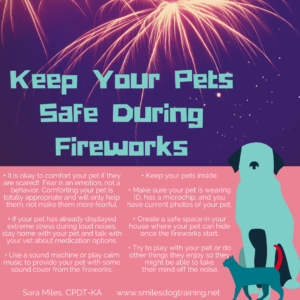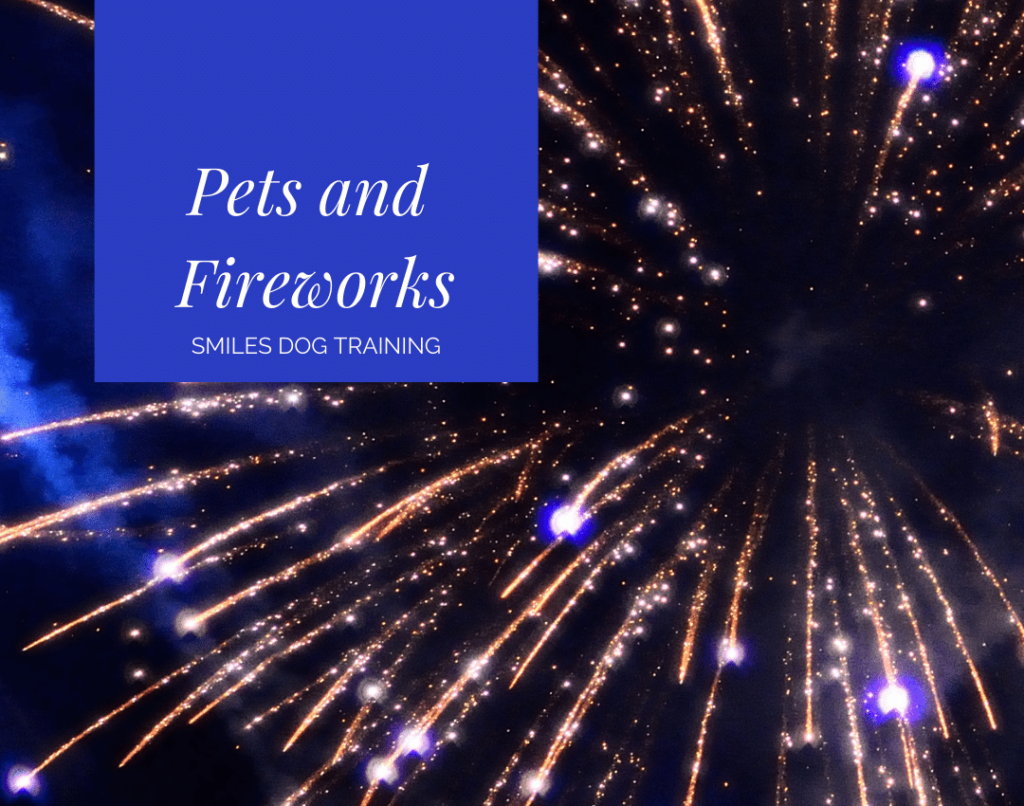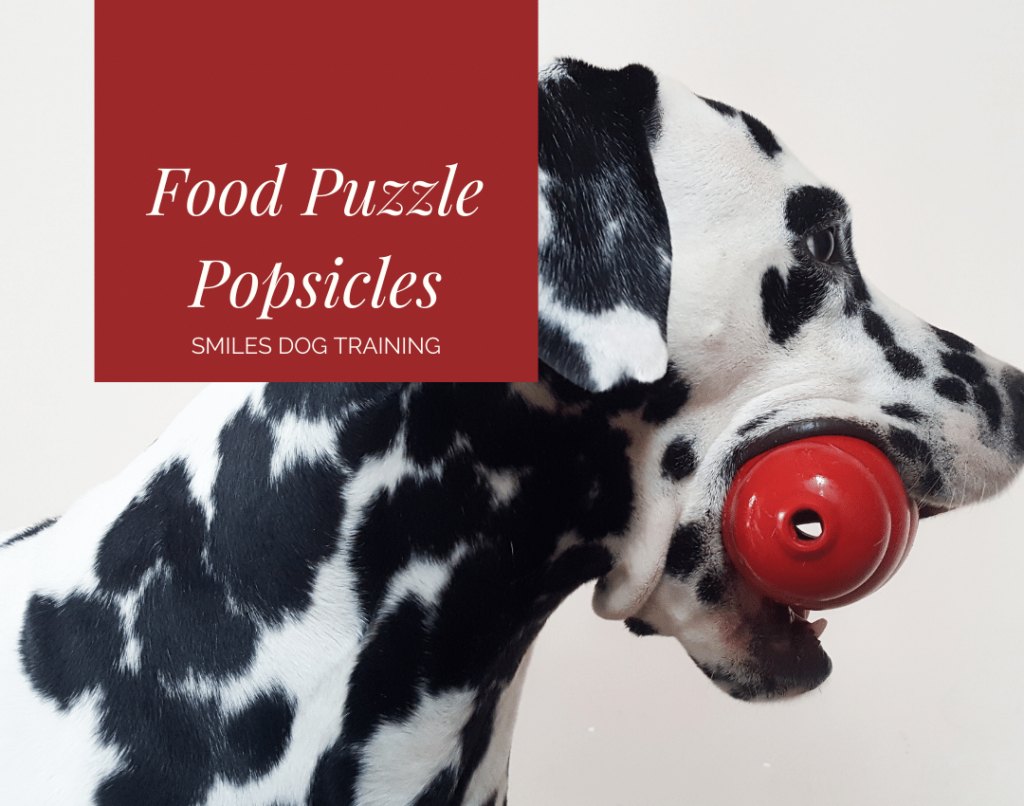More pets go missing and end up in shelters on the 4th of July than any other day of the year. The sudden, unpredictable blasts and shrieking whistles of fireworks can terrify not just pets, but also veterans and wildlife.
I’ve seen this firsthand during my time working in an animal shelter—every year, we braced for the post-fireworks surge of lost pets. Dogs jumped fences, broke through windows, tore through screens—even escaped crates—driven by pure panic.
Fortunately, there are simple ways to help your pet stay safe and feel secure during the noise—and enjoy a little peace of mind yourself.

I DO USE AFFILIATE LINKS IN THIS BLOG POST, WHICH MEANS AT NO ADDITIONAL COST TO YOU AMAZON PAYS ME A LITTLE BIT FOR MY PRODUCT REFERRAL. MY “TRAINER RECOMMENDS” SERIES WILL ALWAYS BE PRODUCTS I KNOW, USE, AND LOVE!
Comfort your pet
If your pet is scared, it’s absolutely okay to comfort them. Fear is a natural response—not something your pet is doing “wrong.” Reassurance helps—it doesn’t reinforce fear.
Your pet doesn’t know what fireworks are—just that something loud and scary is happening. Your calm presence can make all the difference.
Comforting your pet not only helps them feel better—it can also help you feel more in control during a stressful time.
Update your pet’s Identification
Make sure your pet is wearing a collar with up-to-date ID tags and is microchipped.
Double-check that your microchip registration includes your current phone number and address. Snap a few clear photos of your pet—face, profile, and full body—just in case they need to be identified quickly. Also, find out which local shelter handles lost pets in your area.
Imagine the relief of being reunited quickly—these simple steps can help make that possible.
Keep your pets inside
Create a calm, safe space inside your home well before the fireworks start. Secure all doors and windows, and draw the curtains. Even pets who are usually calm may panic and bolt when frightened.
Set up a cozy, dimly lit corner with their favorite blanket, bed, or crate. Turn on calming music or a white noise machine (like LectroFan) to help mask the noise. Let your pet hide where they feel safest—they may choose to tuck themselves under a bed, in a closet, or even in the bathtub.
Think of it as a retreat your pet can escape to when the world feels too loud.
You can also engage them in gentle play or offer chew treats to help distract them. A frozen Kong, a lick mat, or a long-lasting chew can keep their mind engaged and reduce stress. A Thundershirt compression garment can also help, especially for pets who find comfort in gentle pressure or petting.
Helping your pet feel safe means fewer stress symptoms, less pacing, and more peace for everyone in your home.
Be proactive
If your pet has already shown signs of extreme stress in response to loud noises—like vacuums, trash collectors, or lawnmowers—plan to stay home with them during fireworks.
If your pet is new to you, and you haven’t seen them experience loud noises or fireworks, stay home with them.
For pets who are already overwhelmed by everyday noises, fireworks can feel absolutely terrifying.
Pets with severe noise sensitivities are more likely to injure themselves trying to escape what’s scaring them. Some dogs have even broken through crates, windows, or doors in a panic.
Talk with your veterinarian about behavioral medications that could help your pet feel more comfortable. (Avoid Acepromazine—it may sedate pets without actually reducing their fear. A vet experienced with behavior meds can help you find better alternatives. Read here and here for why we don’t recommend Ace!)
Don’t wait until the day of—your vet can help you plan ahead and find a solution that works for your pet’s unique needs.
You can also work with a force-free trainer who uses desensitization and counterconditioning techniques to help your pet build a more positive response to loud noises over time.
Even one session with a qualified, force-free trainer can help you feel more confident supporting your pet.
Planning ahead gives your pet the best chance at staying calm—and helps you avoid a potential emergency.



